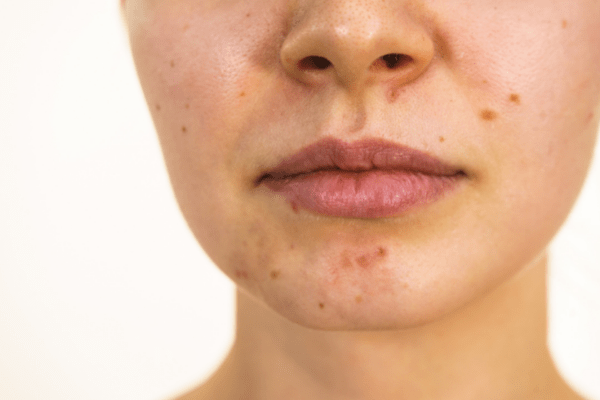Many of us experienced acne outbreaks as teenagers, thinking it’d never continue into adulthood. But for many women, it does. And it impacts how they perceive their appearance.
A recent study found that half of adult women with moderate or severe acne have appearance-related concerns that affect their social, professional, and personal lives, including behaviour-altering effects.
The results revealed that 24 out of 50 women were deeply worried about their appearance, since acne made them self-conscious, and many reported intrusive thoughts about their appearance and how much attention other people showed toward their acne.
The research, published in JAMA Dermatology, showed that patients were frustrated with clinical management, including their attempts at finding the right dermatologist who made them feel comfortable with identifying effective treatment.
Along with his team at the University of Pennsylvania in Philadelphina, John S. Barbieri, a dermatology research fellow, explained that the results of his study “…highlight that acne has multifaceted quality-of-life consequences in women.”
The study involved patients aged between 18 to 40, with moderate or severe acne, who were recruited from clinics at the University of Pennsylvania Health System and from a private dermatology clinic in Cincinnati.
The researchers conducted telephone interviews with participants, where two types of data were collected – firstly, by asking the women to free list (saying the first word that comes to mind about acne) and secondly, open-ended, semi-structured interviews.
“Although acne is often viewed as a disease of adolescence, more than 50 percent of women experience acne in their 20s and more than 35 percent in their 30s,” the authors expressed.
“Many patients described frustration with finding a dermatologist with whom they were comfortable and with identifying effective treatments for their acne.”
“In contrast, those who thought their dermatologist listened to their concerns and individualised their treatment plan reported higher levels of satisfaction.”
“The similarity of the findings of the study to larger international studies supports a consistent theme among patients with acne,” wrote Diane Thiboutot, a professor at Pennsylvania State University College of Medicine, and fellow dermatology expert.
“They were a representative reflection of what women with acne experience regarding acne-related appearance concerns, judging the effectiveness of treatment, and determining what is important to measure in a clinical trial setting.”
“Ensuring access to care and identifying optimal treatment approaches for women with acne are needed to reduce the burden and improve outcomes in this population,” Thiboutot added.
Barbieri added that many studies have charted the adverse quality-of-life effects of acne among adolescents, but few explore the lived experience of acne in adults.
Acne often persists into adulthood, hence gaining understanding of adult women’s perspectives on acne and its treatment can help guide and improve clinical management.



